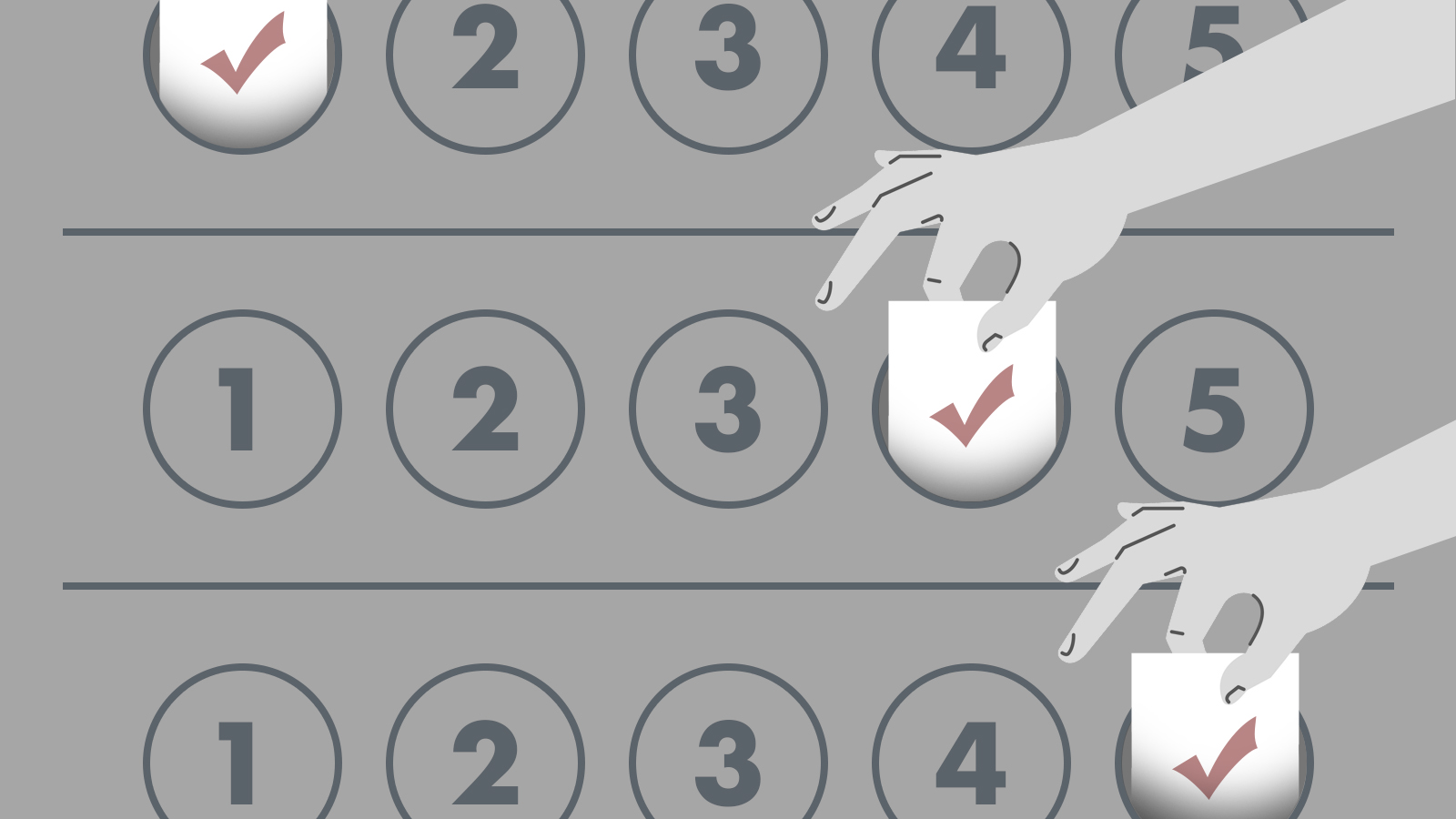Ranked-choice voting will make America's democracy problems worse


A free daily email with the biggest news stories of the day – and the best features from TheWeek.com
You are now subscribed
Your newsletter sign-up was successful
On June 22, New York City will conduct its Democratic mayoral primary using ranked-choice voting (RCV). Though the electoral system has been adopted in other places — the cities of San Francisco, Oakland, and Minneapolis/St. Paul; the state of Maine — this will be its biggest test so far in the United States. Regardless of how Democrats in the country's largest city respond to the experience, Americans should be wary of expanding on the RCV experiment. Advocates argue it will discourage negative campaigning and expand choice for voters, but in reality it will make the country's burgeoning disputes about democracy far worse.
RCV is an electoral system only someone who likes to geek out to the logic games on the LSAT could love. Voters are asked to rank candidates for office in order of preference: first choice, second choice, third choice, and so on. (The number of ranking slots varies by jurisdiction, as of course does the total number of candidates competing in a given race.) Then the tabulations begin. Instead of simply adding up the number of votes each candidate received and pronouncing the one with the most votes to be the winner, RCV counting begins by adding up all the first-choice votes. Then, if none of the candidates has received a majority, the candidate who received the least first-choice votes gets eliminated and those who gave their first-choice votes to that lowest-scoring candidate have their votes reallocated to their second choice. Then the process gets repeated until one of the candidates ends up with a majority.
As one might imagine, this can get extremely complicated, with election tabulators working through ballots multiple times, or relying heavily on complex computer software to do the work for them. The system is also supremely complicated for voters, who can face dauntingly complex strategic decisions in ranking their choices. (This Vox explainer on RCV, focusing on the New York City primary, helpfully lays out some of this complexity.)
The Week
Escape your echo chamber. Get the facts behind the news, plus analysis from multiple perspectives.

Sign up for The Week's Free Newsletters
From our morning news briefing to a weekly Good News Newsletter, get the best of The Week delivered directly to your inbox.
From our morning news briefing to a weekly Good News Newsletter, get the best of The Week delivered directly to your inbox.
The U.S. is a country rife with distrust of institutions and experts, and plagued by growing skepticism about the reliability of elections. The intricacy of RCV tabulations, with officials taking days (or longer) to calculate results behind closed doors and the outcome possibly differing significantly from the stated first-choice preferences of voters, is guaranteed to intensify our disputes around how to fairly and democratically allocate representative offices. Elections and their outcomes need to become simpler and more transparent, not more opaque. RCV is the last thing America needs.
A free daily email with the biggest news stories of the day – and the best features from TheWeek.com
Damon Linker is a senior correspondent at TheWeek.com. He is also a former contributing editor at The New Republic and the author of The Theocons and The Religious Test.
-
 The Olympic timekeepers keeping the Games on track
The Olympic timekeepers keeping the Games on trackUnder the Radar Swiss watchmaking giant Omega has been at the finish line of every Olympic Games for nearly 100 years
-
 Will increasing tensions with Iran boil over into war?
Will increasing tensions with Iran boil over into war?Today’s Big Question President Donald Trump has recently been threatening the country
-
 Corruption: The spy sheikh and the president
Corruption: The spy sheikh and the presidentFeature Trump is at the center of another scandal
-
 Big-time money squabbles: the conflict over California’s proposed billionaire tax
Big-time money squabbles: the conflict over California’s proposed billionaire taxTalking Points Californians worth more than $1.1 billion would pay a one-time 5% tax
-
 Did Alex Pretti’s killing open a GOP rift on guns?
Did Alex Pretti’s killing open a GOP rift on guns?Talking Points Second Amendment groups push back on the White House narrative
-
 Washington grapples with ICE’s growing footprint — and future
Washington grapples with ICE’s growing footprint — and futureTALKING POINTS The deadly provocations of federal officers in Minnesota have put ICE back in the national spotlight
-
 Trump’s Greenland ambitions push NATO to the edge
Trump’s Greenland ambitions push NATO to the edgeTalking Points The military alliance is facing its worst-ever crisis
-
 Why is Trump threatening defense firms?
Why is Trump threatening defense firms?Talking Points CEO pay and stock buybacks will be restricted
-
 The billionaires’ wealth tax: a catastrophe for California?
The billionaires’ wealth tax: a catastrophe for California?Talking Point Peter Thiel and Larry Page preparing to change state residency
-
 Trump considers giving Ukraine a security guarantee
Trump considers giving Ukraine a security guaranteeTalking Points Zelenskyy says it is a requirement for peace. Will Putin go along?
-
 Bari Weiss’ ‘60 Minutes’ scandal is about more than one report
Bari Weiss’ ‘60 Minutes’ scandal is about more than one reportIN THE SPOTLIGHT By blocking an approved segment on a controversial prison holding US deportees in El Salvador, the editor-in-chief of CBS News has become the main story
